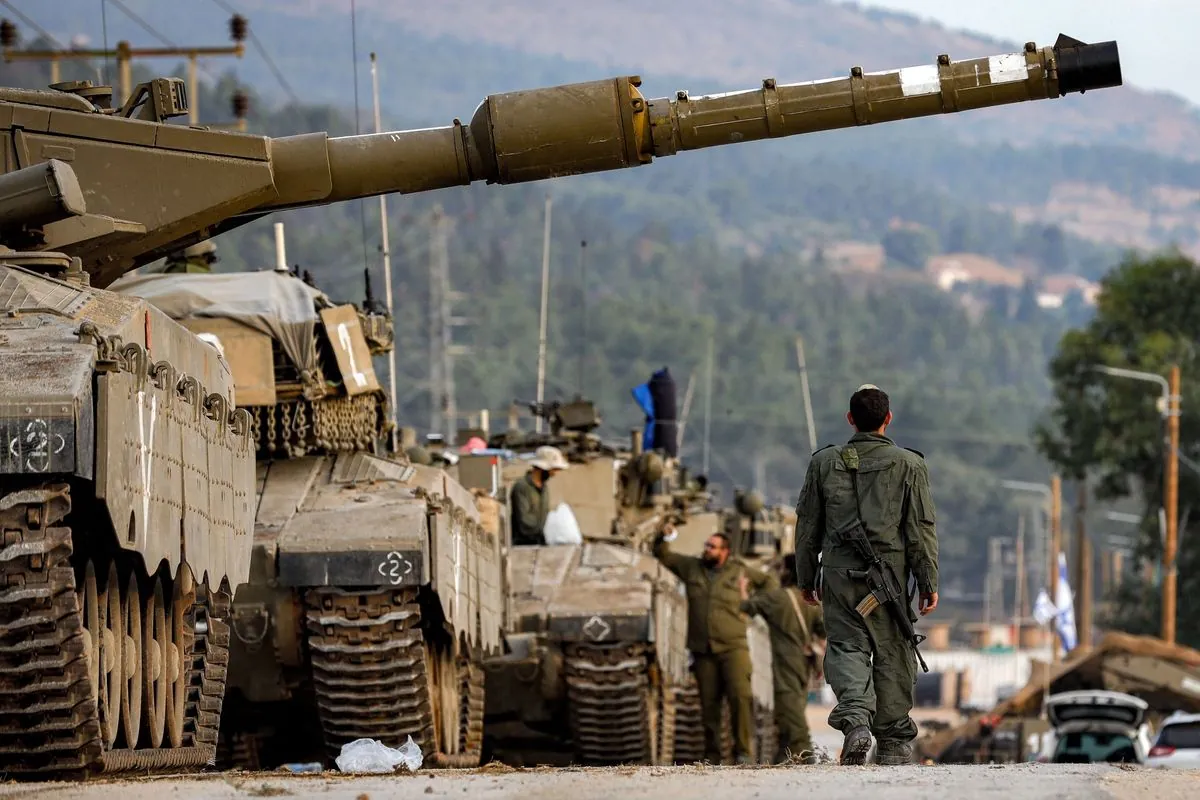The Middle East finds itself on the brink of potential conflict, reminiscent of the Yom Kippur War 51 years ago. The recent exchange of fire between Israel and Hezbollah along the Israel-Lebanon border has heightened tensions, raising fears of a broader regional war.
On August 25, 2024, the largest military engagement since 1973 unfolded, with both sides presenting conflicting narratives of the events. Rear-Adml Daniel Hagari, Israel's military spokesman, stated that Israel conducted pre-emptive strikes against 40 Hezbollah targets in southern Lebanon, claiming to have destroyed thousands of rocket launchers. Conversely, Hezbollah asserted that it successfully hit 11 Israeli sites, including a "special military target" in central Israel, using over 320 Katyusha rockets and numerous drones.
The escalation follows the assassination of Fuad Shukr, a senior Hezbollah commander, in Beirut on July 31, 2024. Hezbollah has warned that this attack is just the "first phase" of its retaliation, implying further actions may follow.
International efforts to prevent a wider conflict are underway. Lloyd Austin, the U.S. Secretary of Defense, emphasized the importance of avoiding regional escalation in a call with his Israeli counterpart, Yoav Gallant. Similarly, Abbas Araghchi, Iran's foreign minister, expressed a desire to minimize tensions through dialogue with European diplomats.
Amidst the heightened tensions, Gaza ceasefire and hostage talks continue in Cairo, offering a glimmer of hope for diplomatic resolution. The international community watches closely as Hassan Nasrallah, Hezbollah's leader since 1992, prepares to address the situation in a televised speech.
The conflict has already forced Israel to evacuate 60,000 to 80,000 people from a 650 square kilometer area along the Lebanon border, approximately 3% of its total land mass, due to the threat of Hezbollah's rockets. This evacuation, ongoing for the past 10 months, underscores the significant impact on civilian populations in the region.
Benjamin Netanyahu, serving his sixth term as Israel's Prime Minister, reaffirmed the country's commitment to protecting its citizens and deterring aggression. He stated, "We are determined to do everything to protect our country, return the residents of the north safely to their homes and continue to uphold a simple rule: whoever hurts us – we hurt them."
As the situation unfolds, the international community remains on high alert, hoping to prevent a repeat of the devastating Yom Kippur War, which claimed up to 20,000 lives over 19 days of intense fighting. The current tensions serve as a stark reminder of the fragile peace in the region and the potential consequences of escalation.
"We are determined to do everything to protect our country, return the residents of the north safely to their homes and continue to uphold a simple rule: whoever hurts us – we hurt them."
The coming days will be crucial in determining whether diplomacy can prevail over the fog of war, as both sides seek to establish deterrence through strength – real and perceived. The international community holds its breath, hoping for a de-escalation of tensions and a return to stability in this volatile region.
